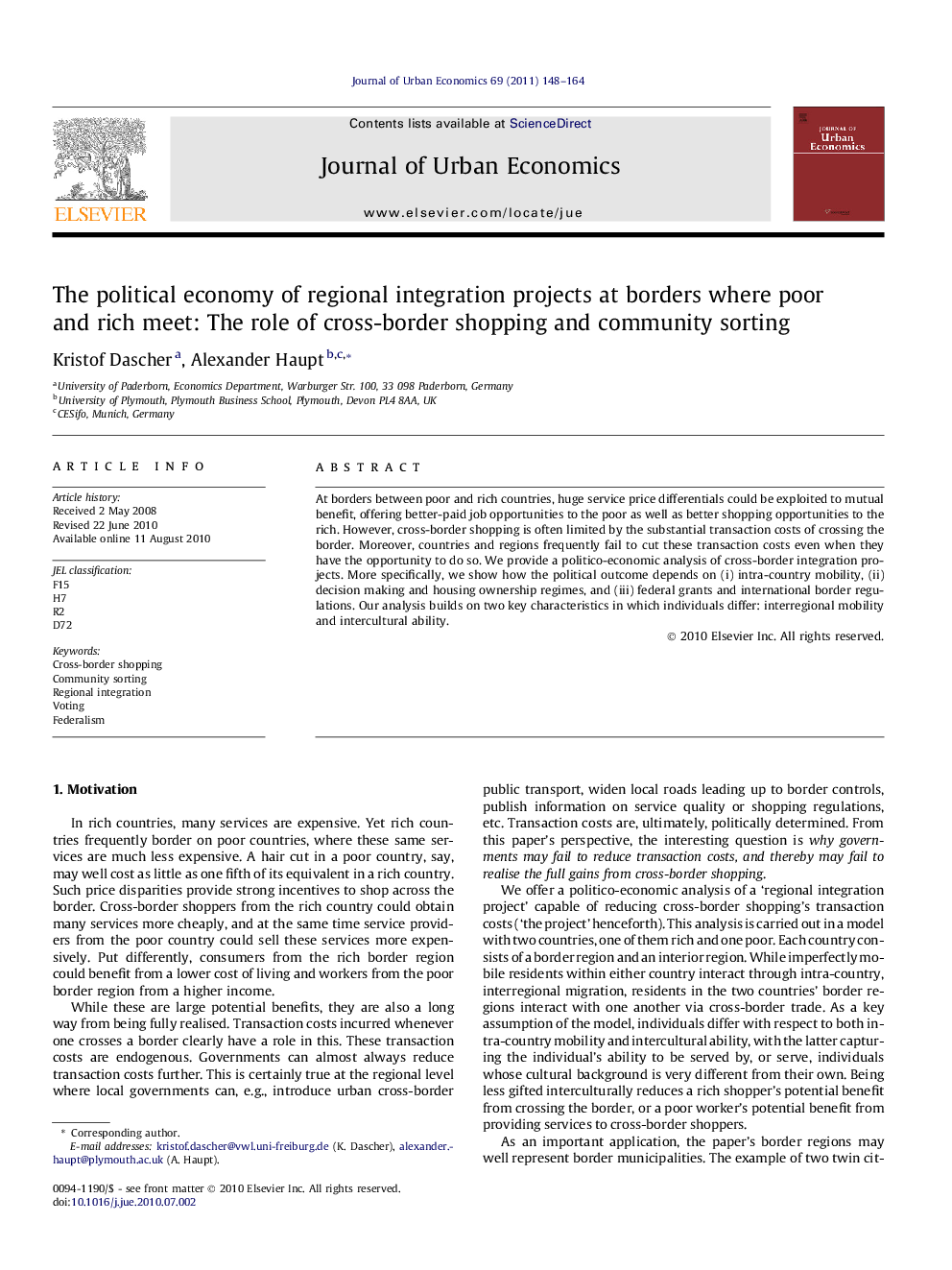| Article ID | Journal | Published Year | Pages | File Type |
|---|---|---|---|---|
| 970898 | Journal of Urban Economics | 2011 | 17 Pages |
At borders between poor and rich countries, huge service price differentials could be exploited to mutual benefit, offering better-paid job opportunities to the poor as well as better shopping opportunities to the rich. However, cross-border shopping is often limited by the substantial transaction costs of crossing the border. Moreover, countries and regions frequently fail to cut these transaction costs even when they have the opportunity to do so. We provide a politico-economic analysis of cross-border integration projects. More specifically, we show how the political outcome depends on (i) intra-country mobility, (ii) decision making and housing ownership regimes, and (iii) federal grants and international border regulations. Our analysis builds on two key characteristics in which individuals differ: interregional mobility and intercultural ability.
